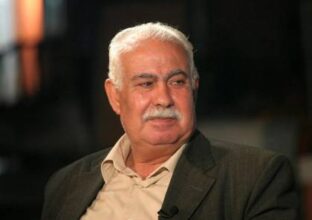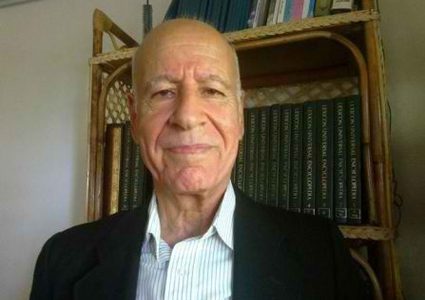Qatar treated as fair game: between frenzy and the hubris of power
Al-Khamisa News Network - Gaza

Author: Akram Atta Allah
The shockwaves from Israel’s brazen act in Doha continue to dominate a world stunned by such audacity, with threats to strike again persisting so long as any of Hamas’s leadership remains in Qatar. The crime itself and the level of treachery were enough to leave it humiliated. But beyond that, Israel continues to threaten a country considered a friend and a mediator whose role is essential for securing the release of its captives — a major service Israel could not have otherwise obtained.
Qatar said the presence of Hamas leaders in Doha was at the request of the United States and Israel. What kind of deranged mind would violate the basic standards of relations and agreements between states? How can a state commit such an act, overriding another country’s independence and sovereignty and despoiling its territory in this way? Only a state that sees itself above the law, backed by a leader who believes he is above the law, and a country that has repeatedly violated sovereignties and spaces beyond counting — the United States often presides over violations of states and the killing of their citizens.
The operation could not have taken place without the approval of the U.S. president, for Hamas was discussing his personal initiative; if Netanyahu had carried it out secretly it would have been a direct blow to Donald Trump’s efforts — something Netanyahu could not risk. The truth is that the U.S. president gave the green light, and afterwards called the Emir of Qatar to express his strong condemnation of the operation. That alone is a model for understanding how they deal with us Arabs, so we can see our position, standing and image in their eyes before we lavish them with agreements and bags of good intentions and innocence that cloak our political relations — which disappear when it comes to relations among Arabs themselves. How much are we worth to them? Merely gullible people who are easily deceived. The image of the Arab that Hollywood portrayed in the 1970s — the man carrying a bag of money and foolishly handing it out while seeking women — is the image Americans and the West still hold.
Are these facts enough to rethink the relationship with the United States, or will we swallow the lies of a president who shamelessly deserves to be called a liar and deceive ourselves because we have no strength? In the mid-1990s Doha signed an agreement with Washington that led to the establishment of the largest U.S. base outside America, supposedly to protect a state that could not protect itself, as its foreign minister and architect of the agreement Hamad bin Jassim said at the time. How much damage that base has done to Iraq, Gaza, Afghanistan, Syria, Lebanon, Iran, Libya and Yemen — from where weapons were sent to Israel and planes took off to strike countries — yet it did not protect Qatar’s sovereignty or prestige.
None of Netanyahu’s major regional victories raised his standing in the polls, which has driven him into a frenzy; he lashes out in every direction — Tunisia, Lebanon, Syria, Yemen, Gaza and Doha. With no confidence in the stability of his government, his panic grows over possible election results, and the Qatar-gate scandal, which led to the dismissal of the head of the Shin Bet and is under police investigation, adds to his woes. The strike on Doha hit all the targets Netanyahu hoped to strike with one stone: it struck Hamas’s leadership — an important card — and, more importantly, it washed away the shame of his office having received funds and not used them in any election advertising against rivals, all at the expense of Qatar’s dignity and prestige.
The strike was outside expectations because Netanyahu still needed Hamas’s leadership in Doha to negotiate the return of the hostages, so most security circles and the military opposed it. But Netanyahu’s calculations have become unpredictable, relying on the U.S. president in ways no one expected; the two have become alike, intoxicated by the wine of power and acting erratically, because the strike in Doha — a friend and ally that had not conflicted with U.S. and Israeli interests in recent decades and at times was even accused of facilitating those interests — was shocking.
There is no clearer description of the state of Israel’s leadership than the one written in Maariv: “A state of arrogance and hysteria surrounds Prime Minister Benjamin Netanyahu, his aides and a number of ministers in the Likud party, which may drive them to fabricate new battles in the region under the illusion that they are the masters of the region and can reshape it.” Striking Qatar expresses a sense of historic victory and a perceived right to re-engineer the region to fit Israeli desires. Power and victory breed euphoria and arrogance, but when that victory does not translate into domestic political capital, reactions become more violent.
What happened to Doha provides a cognitive model of the balance of power in the region and between central states and peripheral ones. It is hard to imagine Netanyahu doing this in Cairo, and that underlines the necessity of recognizing that Arab national security can only be protected by Arabs. Those who have worked to weaken Egypt in recent years to elevate fringe states that lack the means to protect themselves — not only in weapons but in fighting manpower — must reconsider that course. U.S. protection is selective, and at some point the backs of the closest friends are exposed; history shows this, and Qatar is an example.



